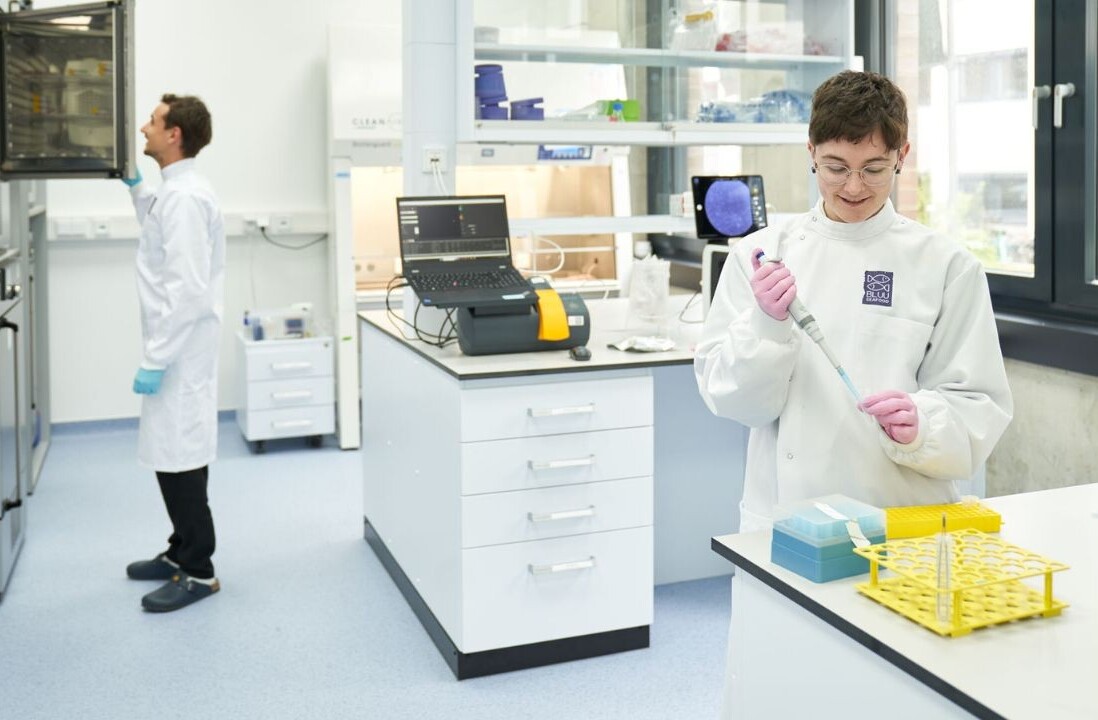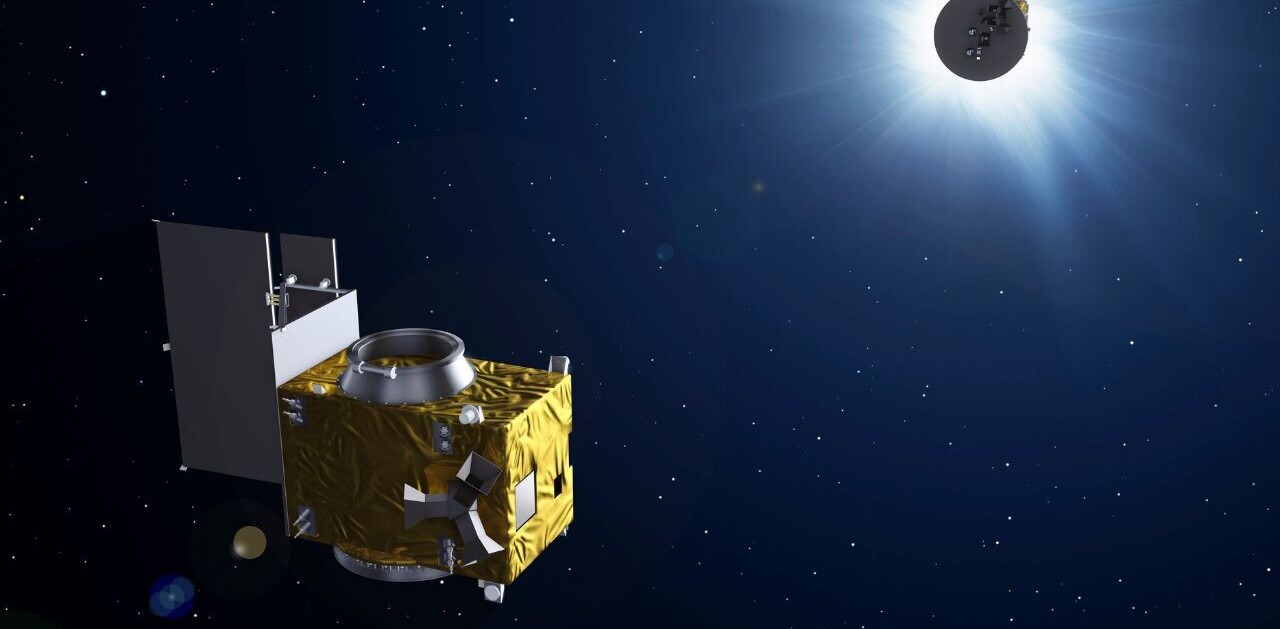
Look around you. What do you see? Coffee cups, cubicles, lightbulbs, desks, chairs or perhaps you’re sitting on the beach? What you don’t see is the energy running through these physical objects; the connective material of our entire universe. And it’s how we use this energy that could one day save the world.
But how can we understand these connections and make use of it? The Internet, of course. One man is spearheading the initiative to map our world’s energy use, collecting seemingly endless amounts of data and organizing the open energy graph the way that Google organized the open Web. Gavin Starks is the Founder and CEO of AMEE, a London based company that is mapping, tracking and connecting all the carbon-data on Earth. AMEE, which stands for the “Avoiding Mass Extinctions Engine” is an aggregation platform capable of coordinating the world’s entire carbon consumption data.
“Carbon represents the environmental component of ‘triple bottom line of accounting’” says Starks. “AMEE is democratizing that set of information, building an open platform that will provide access to this core of metrics, essentially it’s what the Web does in spades.”
AMEE tracks over 300 sources of information, working directly with companies like the World Resources Institute that create the carbon standards for environmental measurements. AMEE then codifies this information into a comprehensive, scalable platform into both both human-readable and machine-computable forms.
First, the AMEE platform includes a very simple application for users who want to assess their carbon footprint. Secondly, businesses, consultants and auditors use AMEE to learn, measure, manage and report greenhouse gas emissions, energy efficiency, materials use, transportation effects and other sustainability metrics.
Developers can build software-as-a-service applications on AMEE’s open platform, which aggregates those different methodologies and codifies them in one place. For example, the UK government’s flash questionnaire on individual carbon footprints is powered by AMEE, and if the U.S. goverment wanted to have a carbon tax on driving, AMEE’s infrastructure could support the initiative.

Starks has been in the big data business for the last 12 years. Prior to AMEE, he developed Internet-based research tools in 1993, joining Branson’s Virgin Net (now Virgin Media) as employee number 5 in 1995. He also founded Tornado and was the Managing Director of UK digital music services company Consolidated Independent, which aggregated digital music from one platform and delivered it to retailers like Amazon and iTunes.
Starks is also an avant-garde artist; his most recent musical project Binary Dust is an embedded music playback device in a 19kg smooth granite rock, which plays his compositions when manipulated by optical controls in the stone. Starks promises that future versions of his musical projects will be solar powered. He has degrees in Astronomy, Electronic Music and is a Fellow of the Royal Society of Arts. Oh, and did I mention he lives on a boat?
As a former astrophysicist, Starks had to measure the whole universe, “So measuring the Earth is a lot easier,” he says smiling. Combining his experience in science, big data and the Web into one world-changing idea, he looked at the range of needed connections to join the dots between the proliferation of standards, different ways to measure data and the proliferation of inputing that data.
 AMEE began in 2007 as Stark’s side project. His first client, the Department for Environment, Food and Rural Affairs (DEFRA) used AMEE to form the backbone of its Act on CO2, a campaign to reduce household carbon emissions. This sparked interest from Google, which then used AMEE for its UK Carbon Footprint project, as well as Morgan Stanley and the band Radiohead. For Radiohead’s last global tour, they used AMEE to measure the footprint of their fans’ travel. Their intent is to use this data to pick better venues and areas to play in the future. AMEE currently has 2,000 subscribers, ranging from individual people to organizations as big as the SAS institute tapping into its API.
AMEE began in 2007 as Stark’s side project. His first client, the Department for Environment, Food and Rural Affairs (DEFRA) used AMEE to form the backbone of its Act on CO2, a campaign to reduce household carbon emissions. This sparked interest from Google, which then used AMEE for its UK Carbon Footprint project, as well as Morgan Stanley and the band Radiohead. For Radiohead’s last global tour, they used AMEE to measure the footprint of their fans’ travel. Their intent is to use this data to pick better venues and areas to play in the future. AMEE currently has 2,000 subscribers, ranging from individual people to organizations as big as the SAS institute tapping into its API.
“Leveraging AMEE’s emissions and energy information, SAS provides one-touch access to the latest emissions factors available,” said Jonathan Hornby, SAS’ Global Marketing Director for Performance Management.
In the UK, companies are incentivized to sign up for AMEE due to the UK’s CRC Energy Efficiency Scheme. This legislation states that if you use more than 6 megawatts a year, about half a million pounds spent on electricity, then you’re significantly taxed. (The tax is at 12 GBP / ton of CO2 emitted above the credited threshold.) This tax will affect approximately 2,500 companies in the UK.
In addition to mandatory legislation, many businesses want to reduce their carbon emissions because it’s responsible and saves money. Companies like Walmart and P&G could use AMEE to measure the sustainability footprint of their supply chains. According to a recent study, 70% of those polled want businesses to mandatorily disclose their carbon emissions.
For any business or application working in this space, AMEE’s data sets are in a class of its own. All standards and data are discoverable for free via AMEE Explorer. This means people use AMEE to learn about what standards and data are out there and are relevant to them. AMEE doesn’t charge businesses to use its data unless that data is proprietary. For enterprises, AMEE has multiple products that have different pricing structures, but in general, they have monthly subscriptions that start at around $1,000 per month.
AMEE is comprised of 1/3 PhD scientists, (including its Chief Scientific Officer, a former award-winning NASA scientist), 1/3 engineers (also mostly with PhDs) and 1/3 sales and marketing. To date, they’ve raised $5.5 million in funding from Amadeus Capital Partners, O’Reilly AlphaTech Ventures and Union Square Ventures.
In the future, as data in the universe becomes increasingly connected through mobile technology, AMEE’s information will only become more valuable. Starks knows everything will get faster, easier and cheaper; but with more data, comes more intelligence, which he hopes will be enough to save us from avoiding mass extinction.
Get the TNW newsletter
Get the most important tech news in your inbox each week.
 “Carbon represents the environmental component of ‘triple bottom line of accounting’” says Starks. “AMEE is democratizing that set of information, building an open platform that will provide access to this core of metrics, essentially it’s what the Web does in spades.”
“Carbon represents the environmental component of ‘triple bottom line of accounting’” says Starks. “AMEE is democratizing that set of information, building an open platform that will provide access to this core of metrics, essentially it’s what the Web does in spades.”



